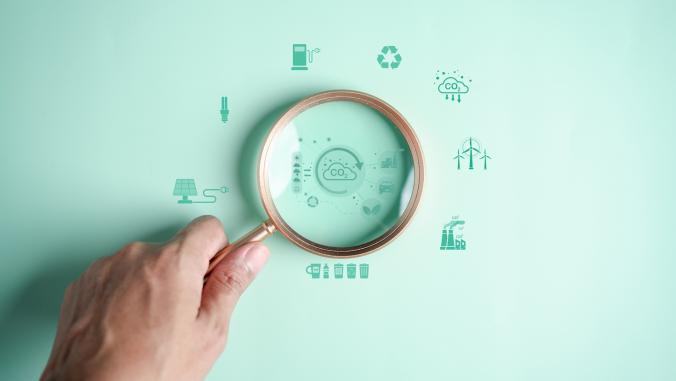Nissan Adds Its Leaf to the Pile of Next-Gen Electric Cars
<p>The Japanese auto manufacturer says that its new model represents the world's first "affordable, zero-emission car."</p>

Japanese auto giant Nissan yesterday declared itself the winner in the unofficial race to develop a mass-market electric vehicle. It did so by unveiling a new battery-powered car called the Nissan Leaf, which the firm said will be in showrooms in Japan, the U.S. and Europe by the end of next year.
The car manufacturer said that unlike existing two-seater electric vehicles, the medium-sized hatchback would seat five adults, with a top speed of about 90mph and a range of more than 100 miles between recharges. It added that according to its own research, the range would be sufficient to cover 70 percent of journeys taken by motorists worldwide.
Nissan said the Leaf's lithium-ion battery would recharge fully in eight hours using a conventional power socket, allowing for overnight refueling, while "fast-charging" power units could charge the battery to 80 percent capacity within just 30 minutes.
 |
Masato Inoue, product chief designer at Nissan, hailed the new car as "the world's first, medium-size, practical EV that motorists could afford and would want to use every day."
The company said that pricing would be announced closer to the car's full launch in late 2010, but insisted that it would be "competitively priced" against cars of a similar size, meaning that it is likely to cost between £10,000 and £15,000 (US$ 16,831 and 25,246).
Reports said the price would be increased by the fact that motorists would have to buy or lease the battery separately. However, Nissan noted that it expected the car to qualify for an "array of significant local, regional and national tax breaks and incentives in markets around the world", and that the lower number of moving parts compared to a conventional car meant that maintenance costs would also be lower.
Unveiling the car at a ceremony in Yokohama, Nissan touted a number of design features intended to further bolster the car's green and high-tech credentials. These include LED headlights which have been designed to reduce drag and use just 10 percent of the energy of conventional headlights, and an IT system that allows drivers to set air-conditioning and charging functions through their mobile phone – a function that could allow the car to text you when the battery has been charged and it is ready to drive again.
The Leaf will initially be manufactured at the company's Oppama facility in Japan, while the Lithium-ion batteries are to be manufactured at the recently announced factory in Sunderland, as well as at plants in Japan, the U.S. and Portugal.
The company said it was also planning to begin manufacturing the car at a site in Tennessee as demand increases, and was investigating a number of further plants worldwide, including Sunderland in the U.K.
However, with several new electric and plug-in electric cars expected to be released in late 2010 and early 2011, the Leaf is likely to face considerable competition. An all-electric Mini and electric Smart car are expected within the next two years, while Toyota and Prius are both planning plug-in versions of their popular hybrid models. Specialist manufacturers such as Indian firm Reva and U.S.-based Tesla are also preparing more affordable versions of their electric vehicles.





